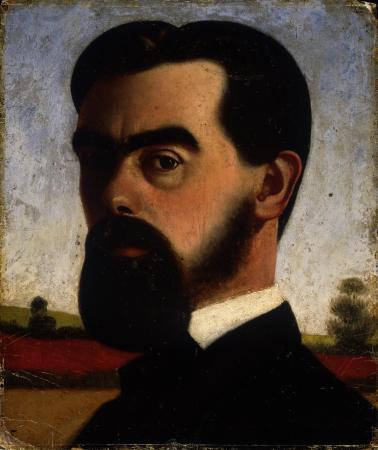“La vie est l’art de tirer des conclusions des prémisses insuffisantes.”
Life is the art of drawing sufficient conclusions from insufficient premises.
en
Samuel Butler était un écrivain britannique principalement connu pour sa satire Erewhon, ou De l’autre côté des montagnes. Wikipedia

“La vie est l’art de tirer des conclusions des prémisses insuffisantes.”
Life is the art of drawing sufficient conclusions from insufficient premises.
en
Life is like music, it must be composed by ear, feeling and instinct, not by rule. Nevertheless one had better know the rules, for they sometimes guide in doubtful cases, though not often
en
“On peut tous faire des grandes choses, si on sait qu’est-ce qu’une grande chose.”
All men can do great things, if they know what great things are.
en
The advantage of doing one’s praising for oneself is that one can lay it on so thick and exactly in the right places.
en
It is far safer to know too little than too much. People will condemn the one, though they will resent being called upon to exert themselves to follow the other.
en
St Anthony tempted the devils quite as much as they tempted him; for his peculiar sanctity was a greater temptation to tempt him than they could stand. Strictly speaking, it was the devils who were the more to be pitied, for they were led up by St Anthony to be tempted and fell, whereas St Anthony did not fall.
en
Life is not so much a riddle to be read as much as a Gordian knot that will get cut sooner or later.
en
Life is a superstition. But superstitions are not without their value. The snail's shell is a superstition, slugs have no shells and thrive just as well. But a snail without a shell would not be a slug unless it had also the slug's indifference to a shell.
en
“C'est facile d'avoir des avis plus justes quand tout le monde les a déjà.”
It's easy to have juster views when everybody else has them.
en
It has, I believe, been often remarked, that a hen is only an egg's way of making another egg.
en
Accuracy
The Note-Books of Samuel Butler (1912), Part IX - A Painter's Views on Painting
Apologia, i
The Note-Books of Samuel Butler (1912), Part XXIV - The Life of the World to Come
Source: Erewhon (1872), Ch. 26
“[Ideas] are like shadows — substantial enough until we try to grasp them.”
Ideas
The Note-Books of Samuel Butler (1912), Part VII - On the Making of Music, Pictures, and Books
Thought and Word, i
The Note-Books of Samuel Butler (1912), Part VII - On the Making of Music, Pictures, and Books
Heaven and Hell
The Note-Books of Samuel Butler (1912), Part II - Elementary Morality
Poetry
The Note-Books of Samuel Butler (1912), Part XII - The Enfant Terrible of Literature
Darwin Among the Machines
The Note-Books of Samuel Butler (1912), Part III - The Germs of Erewhon and of Life and Habit
"Rebelliousness", Note-Books (1912)
Improvement in Art
The Note-Books of Samuel Butler (1912), Part IX - A Painter's Views on Painting
Italians and Englishmen
The Note-Books of Samuel Butler (1912), Part XIII - Unprofessional Sermons
Great Art and Sham Art
The Note-Books of Samuel Butler (1912), Part IX - A Painter's Views on Painting
“He is greatest who is most often in men’s good thoughts.”
Greatness
The Note-Books of Samuel Butler (1912), Part XIV - Higgledy-Piggledy
Eating Grapes Downwards
The Note-Books of Samuel Butler (1912), Part VII - On the Making of Music, Pictures, and Books
“The dons are too busy educating the young men to be able to teach them anything.”
Oxford and Cambridge
The Note-Books of Samuel Butler (1912), Part XIV - Higgledy-Piggledy
Source: The Way of All Flesh (1903), Ch. 23; this is one of the passages excised from <cite>The Way of All Flesh</cite> when it was first published in 1903, after Butler's death, by his literary executor, R. Streatfeild. This first edition of <cite>The Way of All Flesh</cite> is widely available in plain text on the internet, but readers of facsimiles of the first edition should be aware that Streatfeild significantly altered and edited Butler's text, "regularizing" the punctuation and removing most of Butler's most trenchant criticism of Victorian society and conventional pieties. Butler's full manuscript, entitled <cite>Ernest Pontifex, or The Way of All Flesh</cite>, was edited and issued by Daniel F. Howard in 1965. It is from this edition that this quote is derived; it was excised by Streatfeild in the first edition.
Lucky and Unlucky
The Note-Books of Samuel Butler (1912), Part XIV - Higgledy-Piggledy
“An empty house is like a stray dog or a body from which life has departed.”
Source: The Way of All Flesh (1903), Ch. 72
Thought and Word, iv
The Note-Books of Samuel Butler (1912), Part VII - On the Making of Music, Pictures, and Books
Inaccuracy
The Note-Books of Samuel Butler (1912), Part XXII - Reconciliation
Morality
The Note-Books of Samuel Butler (1912), Part II - Elementary Morality
Source: Erewhon (1872), Ch. 12
Ramblings In Cheapside (1890)
“Man is the only animal that laughs and has a state legislature.”
As quoted in 1,911 Best Things Anybody Ever Said (1988) by Robert Byrne
Ramblings In Cheapside (1890)
Source: Erewhon (1872), Ch. 15